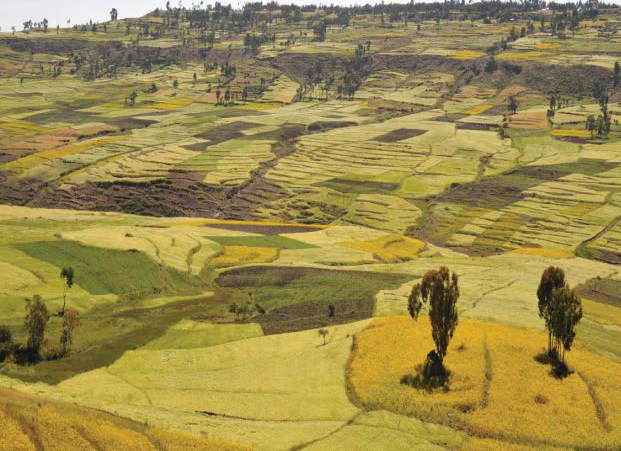E4D Fellow: Mosisa Wakjira
The Future of Rainfed Agriculture and Sustainable Food Production in Ethiopia

Project Duration: 2019 - 2022
Supervisors:
Prof. Dr. Peter Molnar, Hydrology and Water Resources Management Group
Prof. Dr. Johan Six, Sustainable Agroecosystem Group
Collaborator:
Dr. Tena Alamirew, Water and Land Resource Centre, Addis Ababa, Ethiopia
Partner institutions:
external pageWater and Land Resource Center, Ethiopiacall_made
Papers Published:
Wakjira, M., Peleg, N., Anghileri, D., Molnar, D., Alamirew, T., Six, J., and Molnar, P. (2021), Rainfall seasonality and timing: implications for cereal crop production in Ethiopia, Agric. For. Meteorol., 310, 108633, external pagehttps://doi.org/10.1016/j.agrformet.2021.108633call_made.call_made
Project Description

One of the main impacts of climate change in Ethiopia is unpredictable rainfall patterns and extreme temperatures in most agro climatic zones. Owing to the strong correlation between the productivity of rain-fed farming and rainfall, the variability of rainfall becomes very critical issue, because it results in uncertain timing and magnitude of soil water storage, which affects crop yields. In addition to the recurrent drought and expanding aridity conditions, delayed arrival of rainfall during the early growing season, and early termination of rainfall during the late growing season, cause significant crop yield reductions and sometimes complete crop failure. Moreover, rising surface air temperatures accelerate soil moisture depletion due to increases in evapotranspiration even under normal rainfall conditions. On top of this, the coping capacity of smallholder farming communities, whose food and income security is based on rain-fed farming, is very limited. As a result, the outcome of adverse agro-climatic conditions associated with climate change and variability, is usually catastrophic to a significant portion of the population in Ethiopia.
Resilience building in the agro-sector must be a priority for ensuring food security and the livelihood of citizens. A primary way towards more climate resilient rain-fed agriculture is to improve the rainwater productivity through fine-tuning of optimal post-rain soil water management. With this project, we aim at assessing the spatio-temporal vulnerability of rain-fed farming systems, to formulate best adaptation and risk management pathways in semi-arid and sub-humid agroecosystems of Ethiopia.
To do this, we examine the dynamics of the hydroclimatic conditions for the current and future scenarios based on state-of-the-art remote sensing products and climate model outputs, investigate the agro-hydrological impacts of the dynamics by combining the climate model outputs with hydrological and crop growth models. Composite rain-fed agricultural vulnerability index will be computed as a function of feedbacks from the climate, hydrological and crop models in order to produce spatial and temporal vulnerability maps indicating biophysically prone areas and their potential for expansion due to climate change in the future. We will then evaluate the agro-hydrological feedbacks of different adaptive interventions, which are implemented at farm level (e.g., mulching, spate irrigation, and adjusting the growing season), whereby the most effective adaptation pathways (EAPs) will be identified. Risks associated with extreme hydroclimatic conditions and those that belong to natural climatic variability will be identified and plausible risk management alternatives will be formulated.
We collaborate with our partner institutions in Ethiopia, the Ministry of Agriculture (MoA) and Water and Land Resource Center (WLRC) especially on the development of framework to implement the effective adaptation and risk management options at farm level, and ensure the outreach to the farmers through extension service provision.
